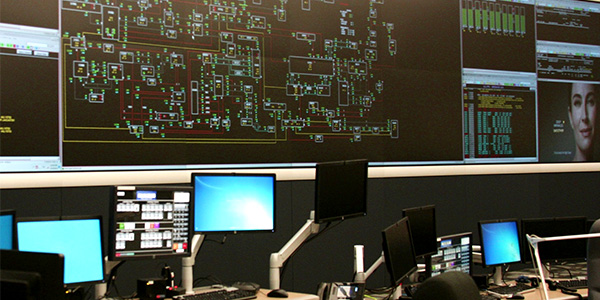The Department of Homeland Security’s Cybersecurity and Infrastructure Security Agency (CISA) has provided a list of guidelines for safely operating control centers during the COVID-19 pandemic.
The Operations Centers and Control Rooms Guide for Pandemic Response applies to “operations centers and control rooms across the 16 critical infrastructure sectors required to operate in a pandemic environment.” As defined by CISA in its Guidance on Essential Critical Infrastructure Workers, these sectors include the electricity, natural gas, petroleum and other energy-related industries; health care and public health; law enforcement and other first responders; transportation and logistics; and water, among others.
“Operations centers and control rooms often operate 24/7, depend on unique equipment, and require specially trained staff who are difficult to replace,” CISA said. “As a result, specialized equipment and long lead times required to train personnel mean there is a higher risk to sustaining reliable operations.”
Recommendations in the guidelines cover preventive measures to keep workers and equipment from coming in contact with the coronavirus; mitigating actions when exposure has occurred; and coordination with federal, state and other authorities to prioritize testing and arrange for free movement of essential personnel during periods of travel restrictions. The measures are advisory and “should not be considered a federal directive.” Owners and operators are also advised to tailor their approaches based on industry and site-specific needs.
COVID-19 Mitigation to Continue
CISA’s guidelines complement the ongoing actions by NERC and the broader electric industry to mitigate the impact of COVID-19. In a recent report, NERC noted that while there are “no specific threats or degradations” to the operation of the bulk power system at this time, utilities must be prepared “to operate with a significantly smaller workforce, an encumbered supply chain and limited support services” as a result of the outbreak. Cybersecurity and shortages of protective equipment are also significant concerns. (See PPE, Testing Top Coronavirus Concerns for NERC.)
Since issuing a Align Tool Set for 2021 Rollout.) NERC has either canceled all external meetings through June or converted them to conference calls.
Along with these actions, NERC also obtained permission from FERC Agrees to Defer Standards Implementation.)
NERC has signaled that it will continue its pandemic response even as state governments begin taking steps to end shelter-in-place orders in hopes of restarting their economies. On Friday, the organization announced it would extend its suspension of on-site activities, including audits and certifications, through Sept. 7. FERC and NERC announced the suspension — originally scheduled to end July 31 — in March, along with other regulatory relief measures. (See FERC, NERC Relax Compliance in Light of COVID-19.)
“The ERO Enterprise recognizes that there are significant uncertainties regarding the duration of the outbreak and the subsequent recovery and will continue to evaluate the circumstances to determine when on-site activities may resume safely or whether additional regulatory relief is necessary,” NERC said. “In the interim, the regional entities are actively involved in remote oversight activities and are experimenting with innovative approaches … to continue assuring the reliability and security of the bulk power system.”





